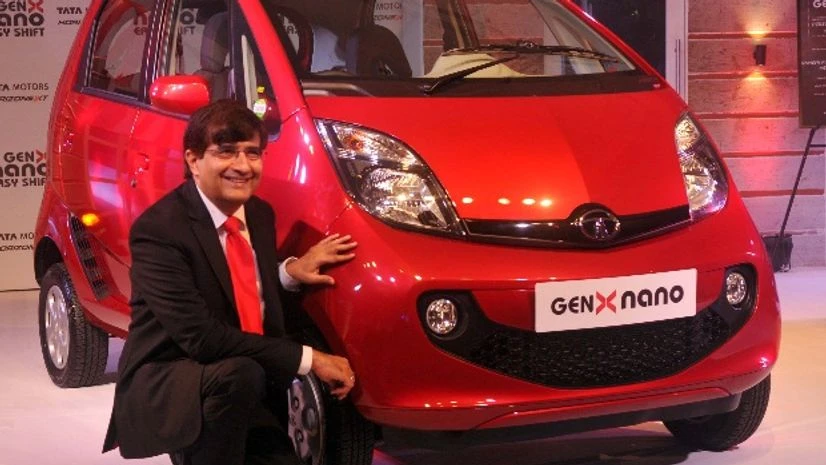Tata Motors, India’s largest automaker, on Tuesday commercially launched the GenX Nano in what was the product’s first mega overhaul since its launch in 2009. The model is priced at Rs 2.1 lakh (ex-showroom, Mumbai), about twice the price of the first-generation model.
Of the five variants of the GenX Nano, two will be equipped with automatic manual transmission, branded as easy-shift by Tata Motors. Priced at Rs 2.8 lakh (ex-showroom, Mumbai) the automatic version will be the cheapest in India. The Maruti Suzuki Alto K10, which has the same transmission technology, is priced at Rs 4.26 lakh (ex-showroom, Mumbai).
The GenX Nano has bootspace of 110 litres, bluetooth connectivity and a rear speaker system. It is the result of two years of product development, based on customer feedback.
Of the five variants of the GenX Nano, two will be equipped with automatic manual transmission, branded as easy-shift by Tata Motors. Priced at Rs 2.8 lakh (ex-showroom, Mumbai) the automatic version will be the cheapest in India. The Maruti Suzuki Alto K10, which has the same transmission technology, is priced at Rs 4.26 lakh (ex-showroom, Mumbai).
The GenX Nano has bootspace of 110 litres, bluetooth connectivity and a rear speaker system. It is the result of two years of product development, based on customer feedback.
The company has discontinued all previous Nano variants (except the compressed natural gas variant). This has raised the car’s base price from Rs 1.65 lakh earlier. While the earlier base variant didn’t have air-conditioning, the new one has a blower.
The easy-shift technology, expected to be a big draw among city buyers (for whom traffic congestion is an issue), is one of the many measures taken by the company to help the car shed its low-cost image.
Abdul Majeed, a PricewaterhouseCoopers analyst, said, “They (the company) needed to relook at that product because there have always been customers for it. Somehow, they were not able to bridge that gap and convince the customer. For the new Nano, they have taken a lot of the customer feedback and applied it in the right areas.”
The car uses a 624 cc petrol-powered engine, generating peak power of 37.5 bhp. “The Nano is known for its peppy driving performance and, with a top speed of 105 km/hour, we feel it is enough for city driving conditions,” said Girish Wagh, senior vice-president (programme planning and project management).
“About 40 per cent of Nano customers are those who already have a car in their household. People might drive to work in a bigger car but for day-to-day purposes, the Nano could be used,” said Mayank Pareek, president (passenger vehicle business unit).
With the new model, the company hopes to beat its previous year’s sales of 16,901 Nano units.
While the Maruti Alto records monthly sales of 15,000-20,000 units, the Hyundai Eon clocks 6,000 units a month.

)
